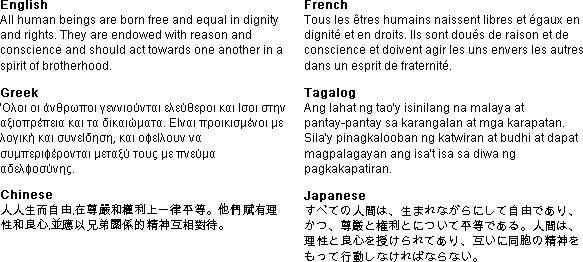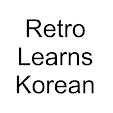Why we should read, especially in a foreign language
Reading, even in one's native language is a fantastic way to learn new words, expressions and even information. In modern times reading for pleasure has been long discarded and been replaced with reading to gain knowledge or to prove someone wrong. While this is great for have a broad knowledge of many subjects and being able to read deeply into a subject, this form of reading has it's disadvantages.
Many people have a diminishing passive vocabulary in their native language because let's face it, who wants to read something that's overly flowery or descriptive when we want the facts that we came to learn. On the opposite end of the spectrum, this can be a disadvantage of reading in a a foreign language because it is not so clear as to what is common language and what is overly flowery language that even natives may have trouble deciphering. This likely won't be too much of a problem as all the common words will be used far more often.
Reading in itself is simply the fastest way to pick up words for foreign language learners but also comes at the price of being quite tiring to do for long periods of time, which is why a lot of listening to and watching of content is highly recommended as they are a lot less intense and contain other advantages such as the sounds and inflection of the language.
 |
| This guy gets it |
The script and starting words
Firstly being able to read the writing system and being able to read a few words will be extremely advantageous. You should be able to pick up a fair few words by using a common words Anki deck and reading through a beginner's grammar book. These should get you to the point where you can read some basic stories and texts without having to look up every other word. I highly recommend using audio when learning your first words and sentences as it will help with picking up the sounds and also help you subvocalise more accurately while reading.
The time it takes to be able to read will vary depending on your native and target language distance and whether or not the writing system is easy to grasp. Lexical distance will affect the difficulty of the text, if you are an English native speaker learning a Latin based language that uses the Latin writing system it would be similar to a Japanese native speaker learning Chinese, the vast majority of words especially rarer and more technical words will be very similar in pronunciation and meaning.
The writing system is more obvious in the difficulty it provides, mainly having an effect on reading speed, take Greek for example it will be slightly harder to read than say danish due to having to learn not just the sounds as you would even for Latin script languages but the shape of the characters will add a layer of difficulty.
 |
| Examples of different scripts used for languages |
Where do we start?
So after some familiarity in the script and sounds we should be looking to read something that is simple with short sentences a graded reader is a good option but they do not exist for many languages so we must look for other options preferably ones that at least try to stick to grammar rules.
If graded readers are not available for your language I highly recommend trying to find a university made reading book, these are fantastic substitutes for graded readers as they generally cover simple topics with short sentences effectively serving as a graded reader for those that are taking their courses although they are available for any one to purchase.
Still bearing in mind these might not be available or purchasable, if you can find books aimed at younger people but not really young children, will likely be the easiest for you to begin reading with. Very young children's book can be harder for learners to understand as they don't often follow the logic we have become accustomed to as adults but also contain onomatopoeic words that are rarely used outside of those books or TV shows with the same audience.
 |
| Excerpt from Yonsei reading 1 |
Moving on to the good stuff
Before I say more, I would like to suggest that you set a specific time and allot a certain amount of hours per day to reading. Preparing your day in advance like this makes it more likely that you will follow through with your plans. Ideally earlier in the day is better for reading as it's when you're brain is recharged from your (hopefully 8 hours of) sleep.
Reading early in the day is easier if you commute by way of public transport or don't commute at all and understandably impossible if you have to drive yourself in which case I can only recommend waking up earlier with the intention of getting your reading in or just reading when you have time in your day later perhaps while on your lunch break.
Anyway moving on to content that you actually want to enjoy shouldn't take as long once you start learning more and more words. The content you want to read is always going to be more enjoyable but likely to use harder vocabulary, the time to move on is when it feels right.
Just trying will be the best way to gauge, pick up what you want to read and try a couple pages and see if it's still too difficult or whether it feels like a good level to you. There is no shame in waiting to come back to something that was once too difficult and when you finally are able to read it, it will be because you know you have put in the work.
| Screenshot of my tracking sheet from October 2019 |
Final words
While I cannot provide specific reading resources and recommendations for the language you may be learning hopefully it will be enough to give you an idea of what to search for in the language that you are learning. It is highly likely these resources are already compiled by a group of learners just waiting for you to stumble upon them.
This is not the be all and end all of reading, there are many ways to get into reading and you can choose any content you wish if that is your desire. It is very much possible and viable to start reading news articles if that is your goal. My advice is aimed at a general learner who wishes to have a good base of vocabulary that they can use to branch off into their field of choice.
Some tips and resources for Korean learners:
For related posts please check out these pages:
- Anki Decks for Korean Learners
- Nintendo Switch Games to play in Korean
- How to Use Ridibooks(Korean Ebook Store)
- Olly Richards' Short Stories in Korean for Intermediate Learners Review
- Billy Go's Korean Reading Made Simple Review
- Lingo Mastery's Korean Short Stories for Beginners Review
- I read 61 Korean books in 2020
- 7 Reading Tips to Accelerate Your Korean Learning
- 7 Fantasy Webtoons You Should Read in 2021
- Tuttle's Korean Stories for Language Learners Review

Thank you, very helpful.
ReplyDeleteThank you, Hopefully I can continue to make content that people will find useful.
DeleteHey I have a question, when I am reading, should I search up every word that I dont know? Or do I just go through it?
ReplyDeletePersonally I don't look them up while I'm reading a book but if I'm reading on PC say a webtoon I look them up while reading. When I'm reading a book I just highlight the words I don't know and look them up later on.
Delete